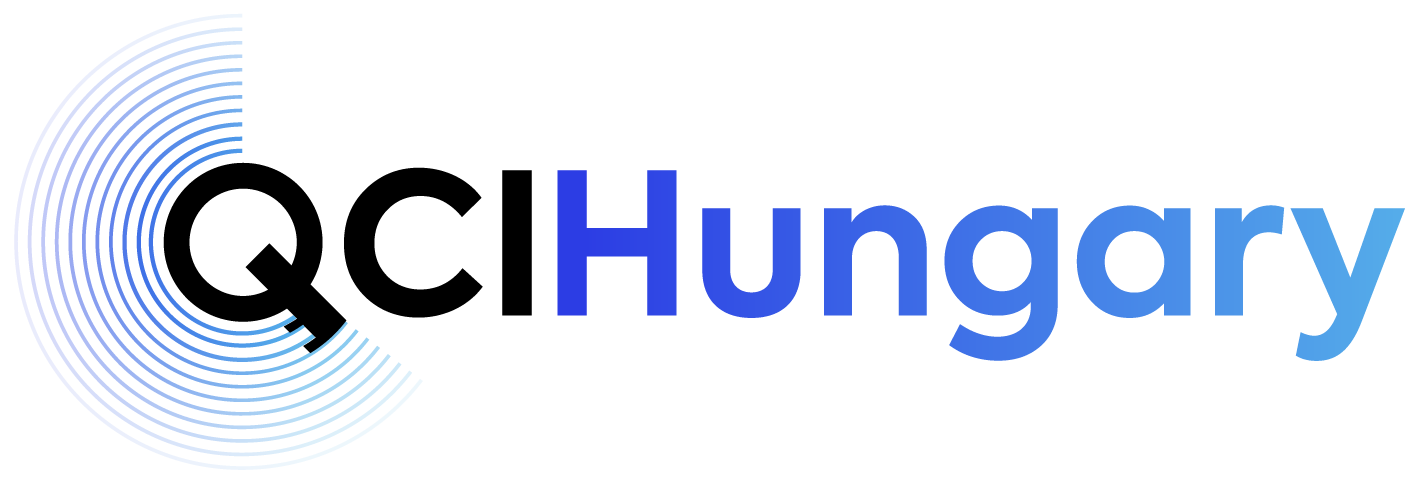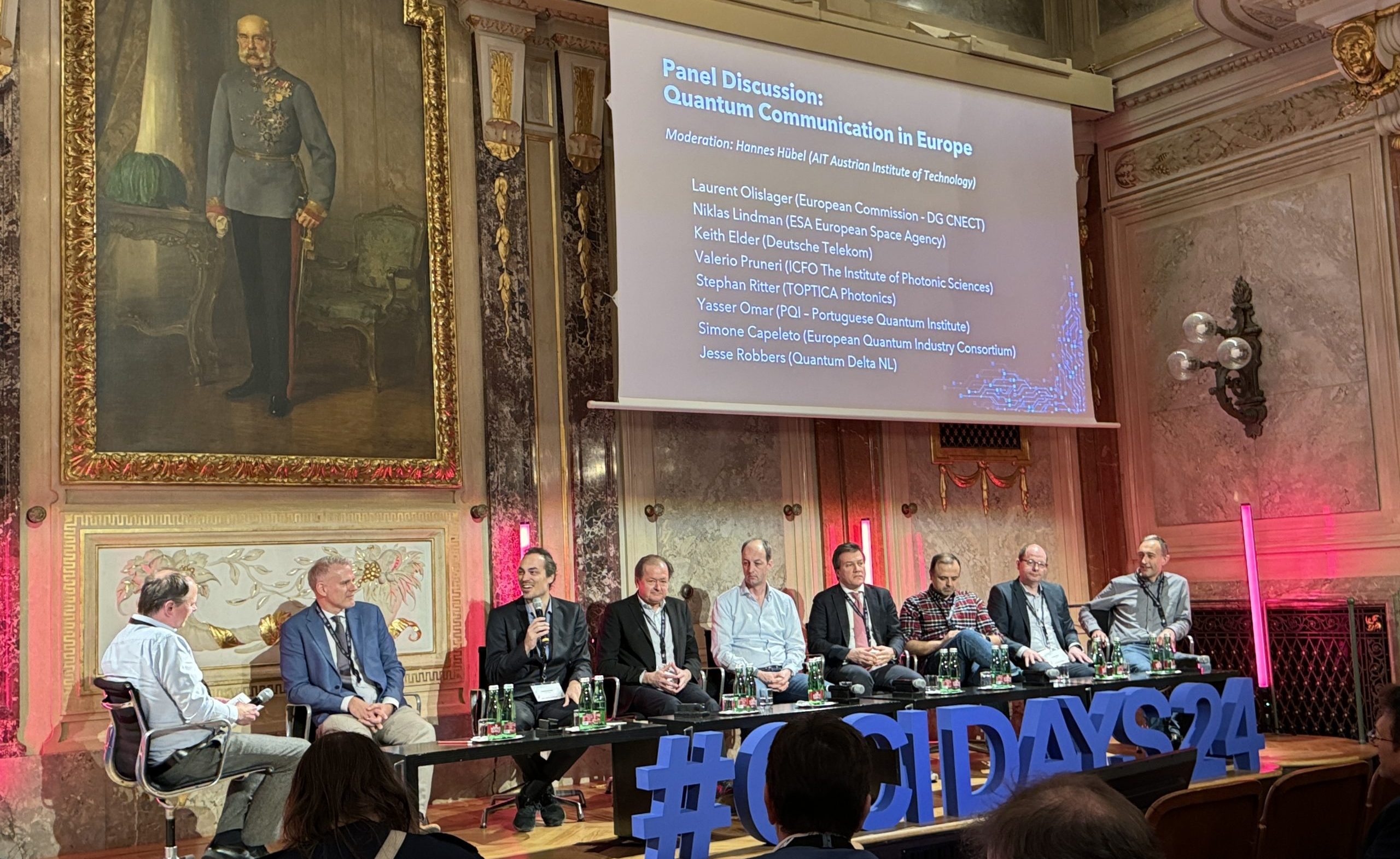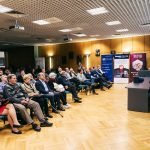The QCI Days 2024 conference was a two-day event that showcased quantum development initiatives from the EU and beyond. The event saw active participation from the QCIHungary team, comprising representatives from all partner institutions involved in the project.

The conference featured several sessions among them on societal challenges, quantum training, satellite and free-space QKD, and use cases and deployments of quantum technologies. Some of the highlights from these sessions are:
- Dr. Kurt Zatloukal’s presentation on quantum solutions for bio-risks and pandemics
- The QCI-CAT project’s introduction of the Blueprint Quantum Academy
- The panel discussion on quantum satellite communication systems and components, including the Eagle-1 satellite
- The panel discussion on diverse applications of quantum technologies, such as military, genomic, and HPC systems
- PSNC’s role in bridging EuroQCI and EuroHPC initiatives and hosting the first European quantum computers
With anticipation, we look forward to similar enriching events and insights during the upcoming QCI Days 2025 in Athens.
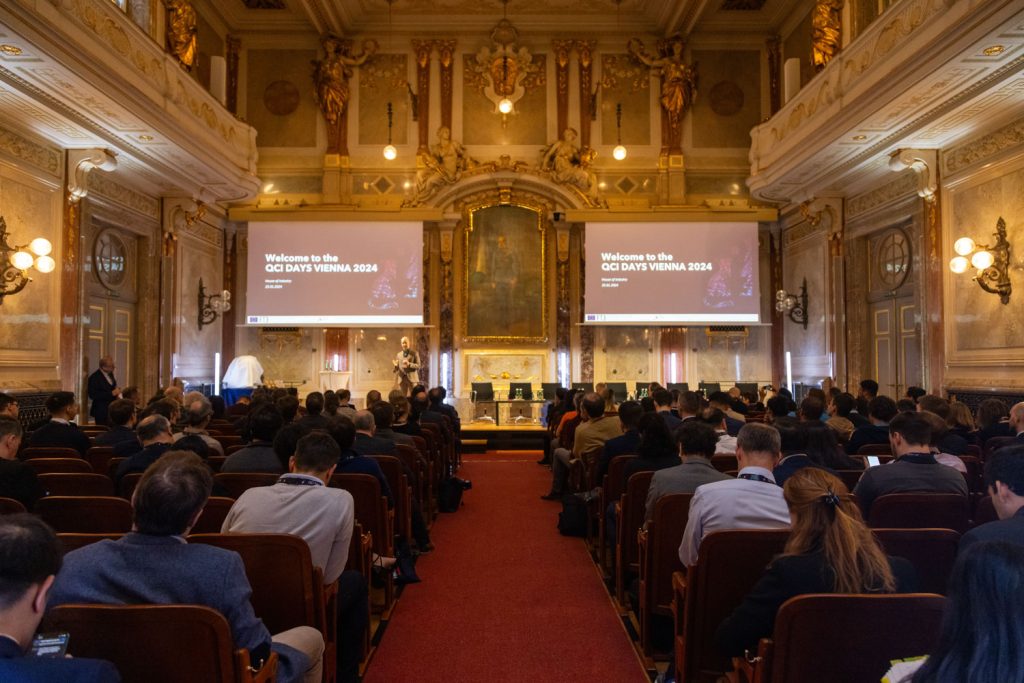
Among the forward-looking sessions at the conference, one particularly highlighted the societal challenges associated with quantum technologies. Dr. Kurt Zatloukal, representing the Medical University of Graz, delved into the challenges posed by various bio-risks and pandemics. His presentation explored potential applications of quantum technologies, algorithms, and communication for global data governance solutions aimed at mitigating bio-risks.
In the same session, Mira Maiwöger and Luka Mainhofer discussed the QCI-CAT project’s role in addressing the diverse training needs across society. This included decision-makers, the existing workforce, quantum engineers, and the general public. The project team introduced a comprehensive quantum qualification profile and proposed a structured quantum training program named Blueprint Quantum Academy, where all interested are welcome.
A compelling panel discussion revolved around Satellite and Free-Space Quantum Key Distribution (QKQ). Experts, including Paolo Villoresi, Deirdre Kilbane, Thomas Scheidl, George Kanellos, Thomas Bäumer, and Francesco Vedovato, shared their insights on building quantum satellite communication systems and components. The discussion touched upon challenges in selecting optimal locations for quantum-capable optical ground stations and the necessary components for their construction. A focal point of interest was the Eagle-1 satellite, designed specifically for quantum communication and set for launch in Q4 of 2025.
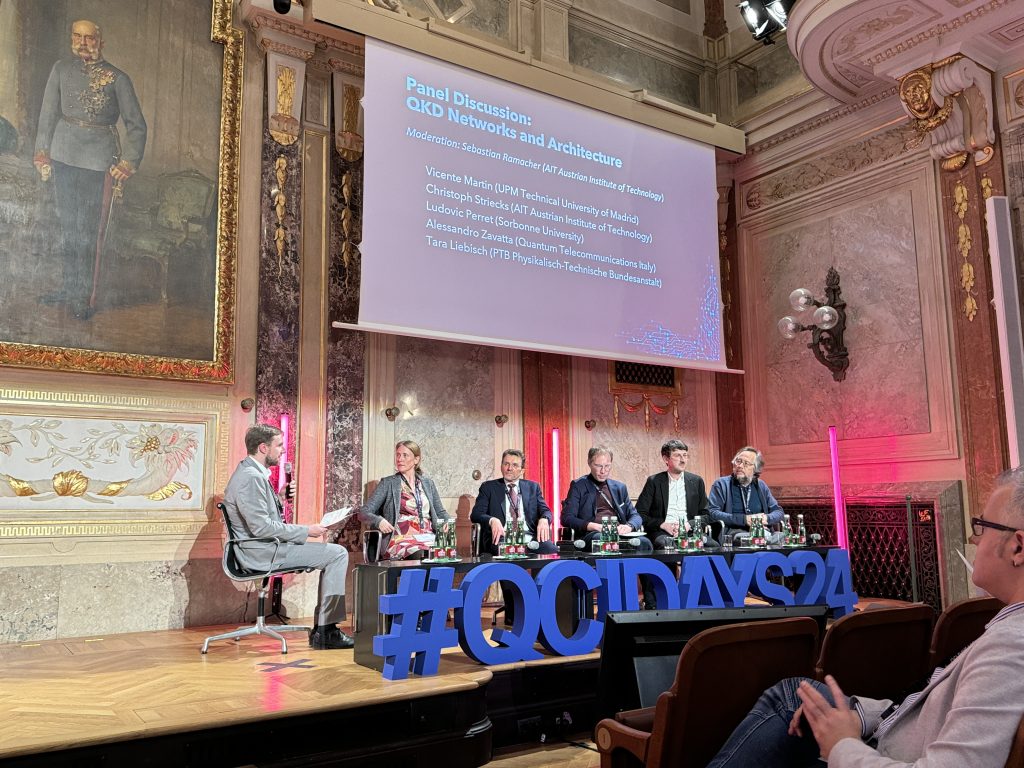
Another noteworthy panel on January 25th centered on Use Cases and Deployments. The experts, including Catarina Bastos, Piotr Rydlichowski, Laura Ortiz, Catherine White, and Paul Spooren, presented diverse applications, such as a military application from the Discretion project and research on a Quantum-Enabled Private Recognition of Composite Signals in Genome, presented by Laura Ortiz.
Piotr Rydlichowski emphasized the applicability of Quantum Key Distribution (QKD) and quantum communication in constructing High-Performance Computing (HPC) systems.
His insights were based on the research outcomes of the Polish Pioneer-Q project, which had been instrumental in advancing quantum technologies. Notably, the PSNC – VSB Ostrava HPC cross-border testbed, showcased within the OpenQKD project, exemplifies the practical implementation of these concepts
PSNC (Poznań Supercomputing and Networking Center) plays a pivotal role in bridging European initiatives such as EuroQCI (European Quantum Communication Infrastructure) and EuroHPC (European High-Performance Computing).
As a leader in quantum communication testing activities within the GÉANT network and EuroQCI collaboration, PSNC contributes significantly to the development of secure and efficient quantum communication protocols by developing the ORCA optical systems, Furthermore, PSNC is among the select sites chosen to host the first European EuroHPC quantum computers.
